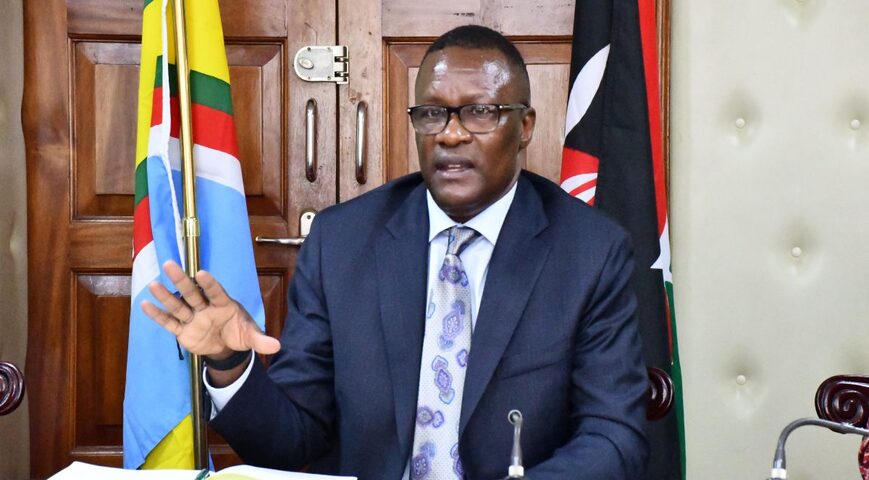The Government will install more than 25,000 Wi-Fi hotspots across the country as part of the digital acceleration programme to extend the internet to remote areas.
Cabinet Secretary (CS), Ministry of Information, Communications, and the Digital Economy, Eliud Owalo, says the free internet will make it easier for the public to access and apply for government e-services.
Speaking in Kwale County during the unveiling of a free public Wi-Fi hotspot at Diani Market, he said that the public Wi-Fi project is a component of the Kenya Kwanza Administration's endeavour to make the government operate for everyone.
According to him, the proliferation of free Wi-Fi initiatives across Kenya's 47 counties will spark an online revolution and give regular Kenyans more power.
“The move is to ensure Kenyans from all walks of life are not left out of the digital revolution and have access to digital services from government and private institutions with ease,” he said.
Did you read this?
He says public Wi-Fi hotspots with better internet speeds aim to aid the general population in their regular socio-economic activities.
“It’s our expectation that this will, in the long run, also create online jobs for the youth,” he said.
The CS pointed out that the free Wi-Fi project is taking place at a time when the e-citizen platform is home to over 5,000 digitised government services.
During the election campaign last year, the Minister stated that the Kenya Kwanza Administration promised to provide Kenyans with a free Wi-Fi project.
Owalo claims that to implement President William Ruto's Bottom-up Economic Transformation Agenda (BETA) agenda; his Ministry is realigning its socioeconomic initiatives.
According to him, spreading public Wi-Fi networks in public places will increase employment and small-scale traders' disposable revenues.
Owalo said the ICT Ministry was running the Ajira and Jitume digital programmes to help young people get the required skills to secure jobs online.
He claimed that the initiatives' main goals are to introduce young people to ICT and give them the resources, instruction, and guidance they need to work and make a respectable living from online jobs.
Owalo claims that in order to improve mobile phone connectivity, the government is collaborating closely with major international tech companies to assemble and produce low-cost smartphones in the nation.









